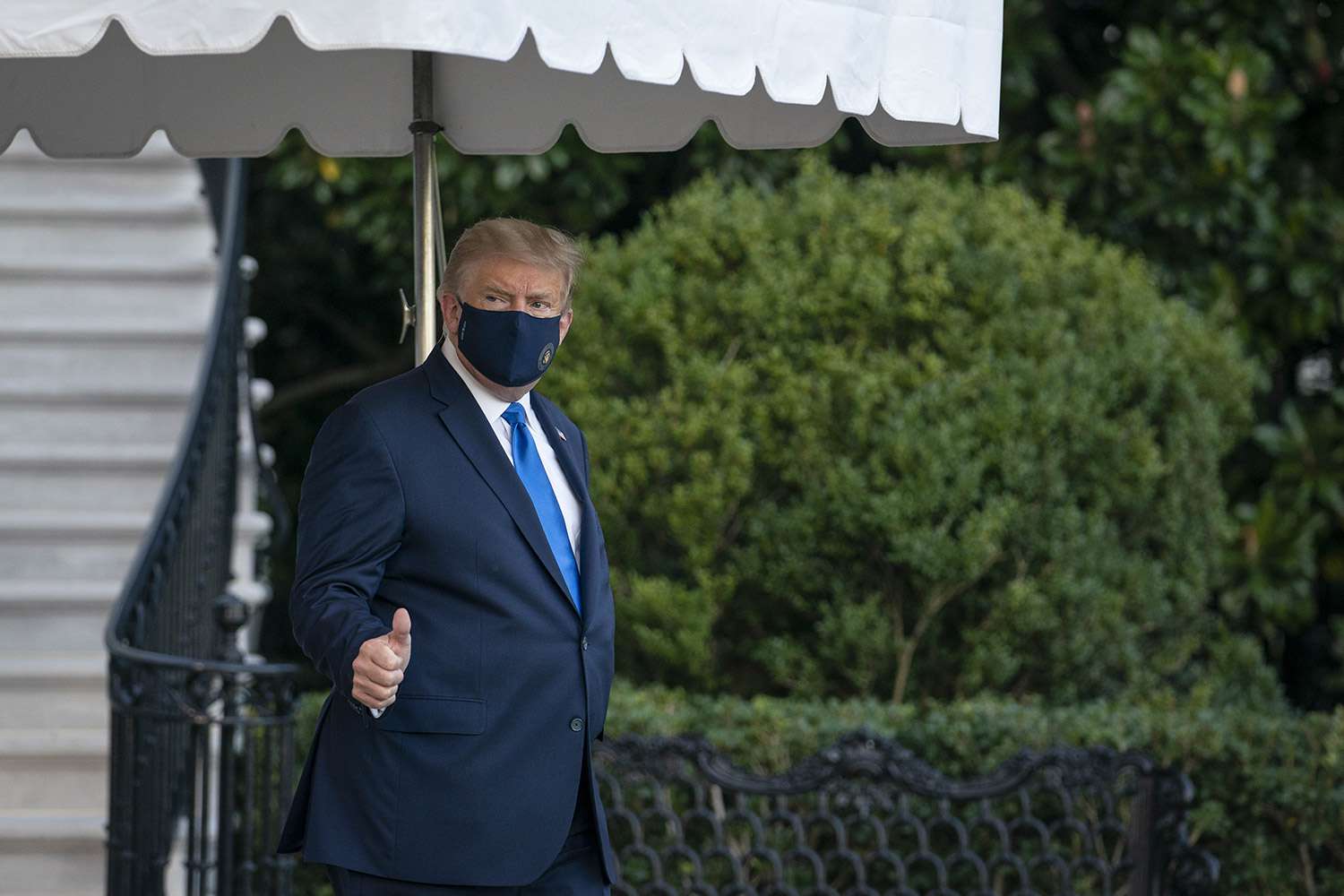In the days following President Donald Trump’s announcement that he has tested positive for COVID-19, his physicians have shared information —sometimes misleading — about his condition and treatments.
The president’s staff initially said that he has “mild symptoms” and was being monitored at the White House. Later that day, he was hospitalized at Walter Reed Military Medical Center out of an “abundance of caution,” said Press Secretary Kayleigh McEnany.
As the weekend progressed, the president’s physician, Dr. Sean Conley, and other hospital staff have presented conflicting reports of Trump’s condition. Conley said that Trump is experiencing “frequent ups and downs,” though the physician added that those changes are common “when a patient is being so closely watched 24 hours a day.”

Here’s how Trump has been treated for COVID-19:
Oxygen
On Friday, though officials maintained that Trump had mild symptoms, Conley later revealed that Trump had a “high fever” that day and was given supplemental oxygen after his levels dropped below 94 percent (a normal reading is typically between 95 and 100).
Trump’s chief of staff, Mark Meadows, said Saturday that he and the doctors had been “very concerned” on Friday after the president’s “blood oxygen level had dropped rapidly.”
Conley said that Trump had "two episodes of transient drops in his oxygen saturation," which "certainly never" dropped to the low 80s, indicating that it may have been below 90.
Regeneron
On Friday, Conley said that Trump was given an 8-gram dose of an experimental antibody medication called Regeneron as a “precautionary measure.” The treatment, called an antibody cocktail, uses lab-engineered antibodies to target COVID-19 and to hopefully stop the virus from spreading in the body. The treatment is not yet approved and is still undergoing human trials, but the company said last week that early results are promising, and the drug appears to reduce levels of the virus and symptoms.

Remdesivir
Late Friday night, Conley said Trump was also given a dose of remdesivir, an antiviral drug initially developed to treat Ebola. Clinical trials over the last several months have found that the drug has quickened the recovery time for moderately sick patients with pneumonia.
The Food and Drug Administration initially limited the drug to severely sick COVID-19 patients, but on Aug. 28 they expanded the authorization to all hospitalized COVID-19 patients, including those with mild or moderate symptoms.
Trump is taking a five-day course of remdesivir, Conley said.
Dexamethasone
Trump was given dexamethasone, an inexpensive steroid typically used in severe COVID-19 cases, on Saturday to address his low oxygen level, Conley said.
"We debated the reasons for this, and whether we'd even intervene," said Conley of the two episodes. "It was a determination of the team based on the timeline from the initial diagnosis that we initiate dexamethasone."
The drug was considered a “breakthrough” when a large trial found in June that it helped save the lives of seriously ill COVID-19 patients. The study showed that it helped to reduce coronavirus-related deaths in people on ventilators by one-third, and by one-fifth in people on oxygen treatments. Dexamethasone had no effect on COVID-19 patients who did not need respiratory support, the researchers said in a statement at the time. A panel at the National Institutes of Health has said that they “recommend against using dexamethasone for the treatment of COVID-19 in patients who do not require supplemental oxygen.”
The dexamethasone is likely an indication that Trump's condition is more severe, as the drug can have negative effects on someone who does not need it. As a steroid, dexamethasone reduces inflammation by suppressing the immune system, which could affect the body’s ability to fight off COVID-19 in milder cases.
"We decided that in this case the potential benefits, early on in the course, probably outweighed the risks at this time," Conley told reporters on Sunday.
Other treatments
Trump is also taking several over-the-counter supplements and medications — zinc, melatonin and vitamin D, along with famotidine, commonly known as Pepcid, and a daily aspirin. There are not yet clear results on whether zinc, vitamin D or melatonin have an effect on COVID-19. Famotidine, along with a daily aspirin, will likely reduce the gastric and general pain from the virus.
As information about the coronavirus pandemic rapidly changes, PEOPLE is committed to providing the most recent data in our coverage. Some of the information in this story may have changed after publication. For the latest on COVID-19, readers are encouraged to use online resources from the WHO and local public health departments. PEOPLE has partnered with GoFundMe to raise money for the COVID-19 Relief Fund, a GoFundMe.org fundraiser to support everything from frontline responders to families in need, as well as organizations helping communities. For more information or to donate, click here.
Source: Read Full Article
